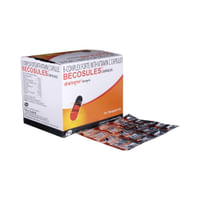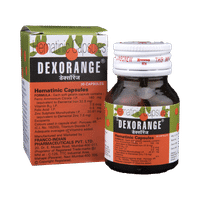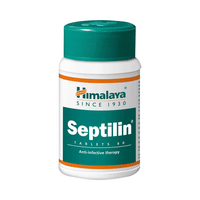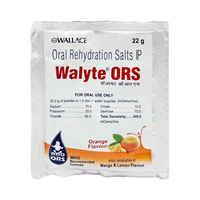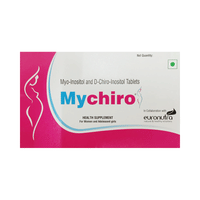Rs.65.90for 1 strip(s) (10 tablets each)
food interaction for Bromogen Tablet
alcohol interaction for Bromogen Tablet
pregnancy interaction for Bromogen Tablet
lactation interaction for Bromogen Tablet
food
alcohol
pregnancy
lactation
Bromogen 1.25mg Tablet should be taken with or after food.
None
None
CAUTION
It is unsafe to consume alcohol with Bromogen 1.25mg Tablet
UNSAFE
Bromogen 1.25mg Tablet is generally considered safe to use during pregnancy. Animal studies do not indicate harmful effects. However, there are limited human studies.
SAFE IF PRESCRIBED
Bromogen 1.25mg Tablet may be unsafe to use during breastfeeding. Limited human data suggests that the drug may pass into the breastmilk and harm the baby. It should be used only if the expected benefit outweighs the potential risk. Please consult your doctor.
Bromogen 1.25mg Tablet is usually not used during breastfeeding because it suppresses lactation.
Bromogen 1.25mg Tablet is usually not used during breastfeeding because it suppresses lactation.
CONSULT YOUR DOCTOR
SALT INFORMATION FOR Bromogen 1.25mg Tablet
Bromocriptine(1.25mg)
Bromogen tablet uses
{med_name} is used for female infertility, acromegaly and high levels of prolactin. It is also used to stop breast milk production (lactation) in case of stillbirth, abortion or miscarriage.
How bromogen tablet works
Bromogen 1.25mg Tablet is a dopamine receptor agonist. It decreases the release of prolactin (milk hormone) in the body. Overproduction of this hormone is associated with abnormal production of breast milk as well as suppression of the sexual glands which can cause infertility. Reducing prolactin levels with Bromogen 1.25mg Tablet can therefore improve these conditions. In acromegaly, it works by lowering the amount of growth hormone in the body.
Common side effects of bromogen tablet
Hallucination, Diarrhea, Confusion, Drowsiness, Constipation, Nausea, Headache, Dizziness, Fatigue, Inflammation of the nose, Weakness, Sinus inflammation, Lazy eye, Dyspepsia, Flu-like symptoms, Visual disturbance, Urinary retention, Fibrotic-related complications, Psychiatric disorders, Stroke, Neuroleptic-like malignant syndrome, High blood pressure, Myocardial infarction, Seizure
SUBSTITUTES FOR Bromogen Tablet
8 Substitutes
8 Substitutes
Sorted By
 Rs. 140.63pay 109% more per Tablet
Rs. 140.63pay 109% more per Tablet Rs. 144.38pay 119% more per Tablet
Rs. 144.38pay 119% more per Tablet Rs. 147.65pay 120% more per Tablet
Rs. 147.65pay 120% more per Tablet Rs. 124.57pay 85% more per Tablet
Rs. 124.57pay 85% more per Tablet Rs. 75.35pay 12% more per Tablet
Rs. 75.35pay 12% more per Tablet
Expert advice FOR Bromogen Tablet
- Bromocriptine is used to treat conditions caused by excess production of a natural hormone called prolactin such as infertility, or abnormal production of breast milk (galactorrhoea).
- It should be taken with or after food to avoid side effects such as nausea or indigestion.
- To lower the chance of feeling dizzy or passing out, rise slowly if you have been sitting or lying down.
- Use caution while driving or doing anything that requires concentration as Bromocriptine can cause dizziness and sleepiness.
- Do not take Bromocriptine if you are breastfeeding.
- Monitoring of blood pressure may be advised regularly during treatment with Bromocriptine.
Frequently asked questions FOR Bromogen 1.25mg Tablet
Bromocriptine
Q. What is hyperprolactinemia?
Hyperprolactinemia is a condition in which a person has higher-than-normal levels of the hormone prolactin in the blood. Prolactin is a hormone produced by the brain's pituitary gland. In women, prolactin regulates periods and helps the breasts produce milk. A high level of prolactin reduces estrogen (female sex hormone) and interferes with ovulation, causing irregular or absent periods and affecting fertility. It also leads to low bone density and causes women who aren't pregnant to produce breast milk. High prolactin also affects the levels of testosterone (male sex hormone).
Q. How is hyperprolactinemia diagnosed?
A blood test can show whether your prolactin level is higher than normal. If it’s borderline, you may be tested twice to be sure. Your doctor may also give you a physical exam and order an MRI to get an image of your brain.
Q. What is the normal level of prolactin in the body?
The normal values for prolactin are:<br>Men: less than 20 ng/mL (425 µg/L)<br>Nonpregnant women: less than 25 ng/mL (25 µg/L)<br>Pregnant women: 80 to 400 ng/mL (80 to 400 µg/L)














